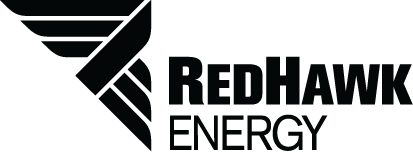RedHawk Energy Systems Alternative Power Options
Electric vehicles and EV charging is quickly becoming a popular plan for many vehicle manufacturers to reduce air pollution, oil spills, and climate issues. However, as this trend grows, many are finding that the current electricity grid cannot sustain drivers’ recharging needs.
At RedHawk Energy Systems, we are dedicated to providing alternative power generating options to our customers that can help meet their EV charging requirements and are also eco-friendly.
EV Technology & Power Grid Failures
Most of us have heard that electric vehicles and EV charging help the environment by reducing the harmful chemical emissions released from the car’s exhaust when it is running. However, when electric vehicles pull their charge and energy from a charger source powered by a grid, they are just transferring CO2 emissions from the vehicle exhaust to power station smokestacks, which does not actually reduce emissions at all.
As electric vehicles become more popular, there is a growing demand for electricity in order to operate them. Expanding electricity grids can be costly and time-consuming, making access to EV chargers difficult and making charging a slow process.
Electric Vehicle Charging Solutions
RedHawk Energy Systems offers a variety of electrical energy products that you can use for EV charging while actually reducing harmful emissions into the environment. Whether you need to access electric vehicle charging off-grid or grid-connected, there are environmentally friendly options you can use.
For off-grid EV charging, a solar panel power system can be used to collect energy, then that energy can be stored in a battery, and with the assistance of a Fuel Cell can provide the necessary charging power for extended durations independent of sun conditions.
For grid-connected EV charging, the same process as off-grid EV charging can be used to run as a backup power option for grid-based charging in order to have access to necessary electrical power during energy shortages, peak usage demands, or power outages.
Solar panels, battery energy storage, and fuel cells are more efficient, environmentally safe, and sustainable methods consumers can use to access electricity for electric vehicle charging when compared to grid-connected charging.
Types of EV Charging Levels
EV charging is available in three different levels based on the consumer’s needs and charging time availability.
Level 1 EV charging is the slowest charging time available. These types of EV chargers are often used in residential locations and can take 22-40 hours to complete a full charge for an electric vehicle. Level 1 EV chargers provide between 1kW – 1.8kW of power through a regular 120V AC outlet.
Level 2 EV charging is faster than Level 1 charging and uses a 208V – 240V AC outlet, providing about 20kW of power. Depending on electrical power availability and supply, a Level 2 EV charger can recharge an electric vehicle in two to 13 hours.
Level 3 EV charging (also known as DC Fast Charging) utilizes a three phase 480V AC outlet and can provide 360kW power, making it the fastest and most efficient EV charging system available. With Level 3 EV charging, a complete electric vehicle charge can be reached anywhere from 15 minutes to 1.5 hours.
RedHawk Energy Systems EV Charging Infrastructure Power Systems
One of the biggest setbacks in establishing EV charging areas is infrastructure. At RedHawk Energy Systems, we have deep industry experience and knowledge on how to combine solar, energy storage, and fuel cells into a complete EV charging system to provide clean, environmentally friendly, and reliable vehicle charging independent of the utility grid.
Our solar power systems provide a source of DC power that can convert sunlight into electricity. We configure and customize our solar systems to fit your specific location and applications, taking into account weather and meteorology data, software programs, and radiation data. There are no fueling requirements for this technology and surplus electricity can be stored in batteries for future use.
Our energy storage batteries can be used in both off-grid and grid-connected EV charging. Energy storage batteries help to reduce EV charging costs, reduce energy demand charges, improve reliability, increase EV charging capacity, and improve EV charging station efficiency.
Our Alkaline Fuel Cells (AFC) are a reliable method to continue to access electrical power during high demand time or in emergency power outage situations. They are durable, low maintenance, quiet, and resistant to harsh weather conditions. Alkaline Fuel Cells are powered by hydrogen or ammonia and generate zero emissions to meet ever expanding sustainability initiatives.
RedHawk Energy Systems EV Charging Infrastructure
Electric vehicles are quickly becoming more popular; however, common EV charging infrastructure is lagging behind. RedHawk Energy Systems offers complete EV charging infrastructure systems that are eco-friendly and reliable.

